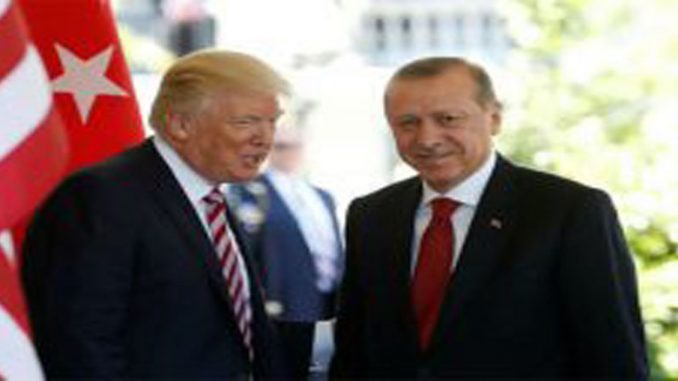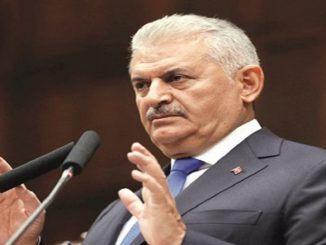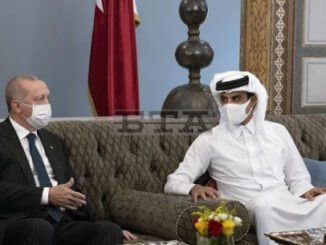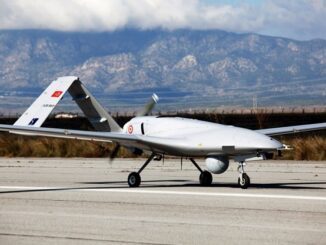
 BY: Merve Şebnem Oruç
BY: Merve Şebnem Oruç
The Belgian capital of Brussels is hosting the summit meeting of NATO Heads of State and Government today.
There is no doubt that at this summit, eyes will be turned to two names in particular: U.S. President Donald Trump and Turkish President Recep Tayyip Erdoğan. While President Erdoğan goes to Brussels following his May visits to India, Russia, China and the U.S., Trump, who made his first visits abroad to Saudi Arabia, Israel and the Vatican, will, from here, head to Brussels, followed by Taormina, Sicily for the G7 summit. We can say that NATO allied countries have problems with the leaders of both countries. Yet, the two leaders also have criticisms of NATO and both leaders are joining the NATO summit following interesting visits.
Trump, who became president about four months ago, had quite concerned the U.S.’s loyal Western allies with the “America First” rhetoric he adopted during the campaigning period. Although he described NATO as outdated and broken-down, he later turned from this view and expressed the U.S.’s dependence on NATO by saying that “NATO is of fundamental importance for peace and stability.” However, he had continued to stress that the burden of defense costs needs to be shared by all NATO members. It was interesting that Trump, who opened to debate the fact that the U.S., with its $650-billion contribution to the NATO budget, makes more than double the contribution of the total contribution made collectively by the remaining 27 members, reminded during German Chancellor Angela Merkel’s Washington visit that Germany owes both the U.S. and NATO huge amounts for the strong and quite expensive defense they provide. Meanwhile, the White House explains Trump’s criticisms of NATO by saying that Trump is also aware that “The U.S. has stable ties with NATO,” yet, they “don’t think NATO is acting within its founding purpose or that it is effective.”
Trump’s attitude toward NATO and his hard-to-predict behavior are certainly causing continued tensions with Western alliances. However, a lot has passed since the first day the new president came to office and now. For instance, the likelihood of “Trump being dismissed from duty” due to the Russia blockade is being discussed a lot more now. Okay, but is the Russia issue a problem outside the U.S. as much as it is in the U.S.? NATO may have stood up against the USSR’s expansionist policies in the post-World War II era, however, as a result of the global free market economy set up by the U.S., it is also true that countries like Germany, on whose defense against Russia the U.S. has poured huge amounts of money, have strong economic ties with Russia.
Trump, who is expected to emphasize NATO’s ineffectiveness against new threats and that it does not fulfill its task, is coming to the summit, where many matters from China to North Korea, Ukraine to Syria will be discussed, with an almost $380-billion agreement covering defense and energy signed currently with Riyadh, a promise made to jointly fight terrorism and extremism and an anti-Iran attitude. Trump, who continued his anti-Iran discourse during his visit to Tel Aviv and, being the first U.S. president to visit the West Bank while in office, met with Mahmoud Abbas in Bethlehem and gave his word to do all he can to ensure peace between Israel and Palestine. He then went on to the Vatican and met with Pope Francesco, with whom he had conflicted during the campaigning period. It is obvious that Trump, while following a foreign policy differing from the Barack Obama administration, is going to give a new description of “world peace” and that he wants to get support for this view from the Christian public, rather than the secular West. He is most likely going to pay attention to this in his criticism of NATO.
Meanwhile, President Erdoğan, as the leader of NATO-member Turkey, has, for some time now, been continuing his criticisms of NATO. Differing from Trump’s, his criticism is not only of NATO’s ineffectiveness in the fight against terrorism, but also to NATO-member countries’ support of terrorism. Erdoğan, stating that the weapons terrorists are armed with are provided by NATO-member countries, including the U.S., says the blindness caused by Islamophobia, at a time when threats have become global and the power equilibrium is changing, is affecting the way organizations like NATO deal with the matters in their area of interest. He says, organizations like NATO need to renew themselves or that this fire will eventually reach them too.
The support provided to the Kurdistan Workers’ Party’s (PKK) Syrian franchise, the Democratic Union Party (PYD) and its armed wing People’s Protection Units (YPG), is not the sole matter at the center of Erdoğan’s criticisms. Even though NATO has given the “We are with Turkey” message following the July 15, 2016 coup attempt, the Fetullahist Terror Organization (FETÖ)/coup-plotter soldiers see NATO countries as havens to take refuge in. While NATO countries such as Germany, the Netherlands, Belgium and Norway are countries where FETÖ members, including the coup-plotter soldiers, seek to request asylum, countries like Greece are not returning the coup plotters to Turkey.
Erdoğan, who is announced to have a meeting with European Commission President Jean Claude Juncker and European Council President Donald Tusk in Brussels, is expected to, at the point reached in strained Turkey-EU relations, evaluate many interconnected issues such as the migration map, the state of refugees, Turkey’s buffer role to Europe and the EU failing to fulfill its responsibilities despite this, the rising racist wave in Europe, as well as unopened chapters.
As Trump’s game plan is gradually becoming clear, Erdoğan, who came to Brussels following his visits in May to India, Russia, China and the U.S., is going to give the message that Turkey is no longer the old Turkey through his contacts with powerful countries that are alternatives to the West. Surely the criticisms toward NATO will not be answered in a day. However, the weakened alliance, the increased number of criticisms rising from within and summits where these criticism are voiced loud and clear, will continue to give clues as to how the new world order is going to take shape.
*Merve Şebnem Oruç is a Turkish journalist and columnist. She writes for Yeni Şafak Turkish newspaper.
(Published in Yeni Şafak on Thursday, May. 25, 2017)



